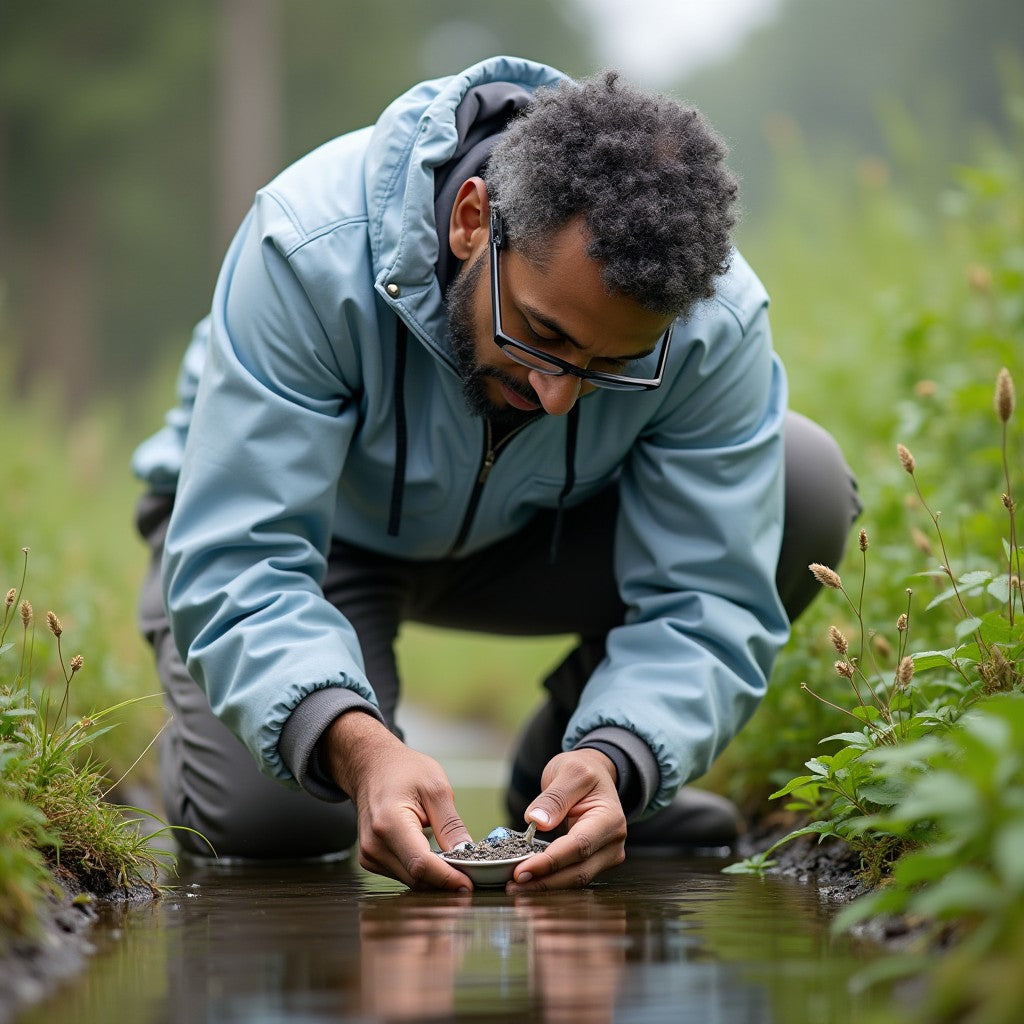
Environmental Microbiology: Guardians of Our Planet
Share
Imagine being a guardian of the environment, protecting ecosystems from unseen threats. Picture yourself as a scientist on a mission to save the world, but instead of battling aliens or building high-tech gadgets, your opponents are microscopic organisms. Welcome to the fascinating field of environmental microbiology, where the tiniest organisms can have the biggest impact.
The Role of Environmental Microbiologists
Environmental microbiologists are like detectives of the natural world. They study how microbes—those microscopic organisms that we can’t see with the naked eye—interact with the soil, water, and air around us. Their work involves exploring nutrient cycling, biodegradation (how nature breaks down things), and climate change.
Imagine a world where pollutants, like oil spills, plastic waste, and harmful chemicals, disappear, thanks to the hard work of these tiny organisms. Environmental microbiologists are the ones who figure out how to harness the power of microbes to clean up our environment. They’re the unsung heroes keeping our planet healthy.
What Does It Take to Become an Environmental Microbiologist?
If you’re passionate about sustainability and environmental health, this just might be your field, but let’s break down what it takes to become an environmental microbiologist:
- Education Path: Your journey starts with a bachelor’s degree in environmental science or microbiology. From there, you’ll usually pursue a master’s degree or a Ph.D., which means about six to ten years of study. It’s a commitment but one that can lead to a deeply fulfilling career.
- Typical Salary: The average salary ranges from $50,000 to $100,000 per year. Not only do you get to make a positive impact on the environment, but you also earn a decent living doing it!
Why Choose Environmental Microbiology?
So, why should you consider this path? Here are a few reasons:
- Make a Difference: Environmental microbiologists are at the forefront of fighting climate change and pollution. Your work can directly contribute to saving ecosystems and improving the health of our planet.
- Exciting Discoveries: This field is all about exploration and discovery. You’ll constantly learn new things about the microscopic world and how it affects the environment. Each day brings new challenges and opportunities to solve complex problems.
- Diverse Opportunities: From working in laboratories to fieldwork in diverse ecosystems, the job offers a variety of experiences. You might find yourself studying microbes in a rainforest one day and analyzing water samples from a polluted river the next.
- Interdisciplinary Nature: Environmental microbiology overlaps with many other fields, including ecology, chemistry, and even engineering. This interdisciplinary nature means you’ll be working with a wide range of experts, broadening your knowledge and skill set.
If you’re a college-bound student with a passion for science and the environment, consider a career in environmental microbiology. It’s a field that promises not only a stable and rewarding career but also the chance to make a real difference in the world.
Being an environmental microbiologist means you’re on the front lines of protecting our planet. You’re a guardian of the environment, ensuring that future generations inherit a healthy and vibrant world. Embrace the challenge, dive into the invisible world of microbes, and join the ranks of those dedicated to preserving our planet.
Together, we can make the world a better place, one microbe at a time.
Additional Information:
Maier, Raina M., Ian L. Pepper, and Charles P. Gerba. “Introduction to Environmental Microbiology.” Environmental Microbiology, 2009, 3–7. https://doi.org/10.1016/B978-0-12-370519-8.00001-8.
Labs, Raise. “Environmental Microbiologists: Salary, Career Path, Job Outlook, Education and More - RaiseMe.” RaiseMe, 2016. https://www.raise.me/careers/life-physical-and-social-science/microbiologists/environmental-microbiologists/. Accessed 11 Nov. 2024.
